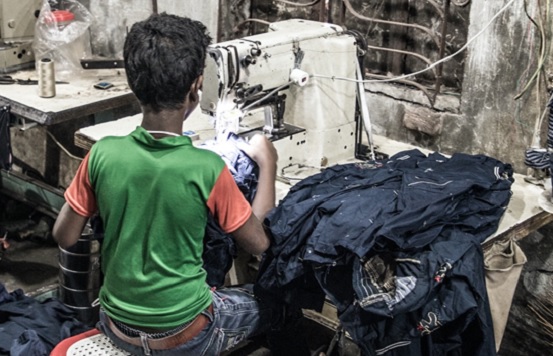


Businesses, large and small, need to act together to operate responsibly and eradicate unethical practices, unsafe or abusive working conditions and forced labour in their supply chain. A zero-tolerance approach against modern slavery is vital to ensure that exploitation risks don’t go undetected and to prevent slavery happening in the first place.
Exposure to exploitation and Modern Slavery through international supply chains has been a growing risk for UK businesses in a globalised environment. With complex supply chains spanning the globe, this brings a heightened risk of awareness of working conditions and compliance gaps, making it more likely that unethical practices can go undetected.
Because of its hidden nature, there is no definitive source of data to accurately quantify the number of victims of modern slavery in the UK. The International Labour Organization currently estimates that there are 24.9 million victims of modern-day slavery or forced labour globally and the Walk Free Foundation has estimated the number of victims of modern slavery in the UK at 136,000.
The Modern Slavery Act came into force in the UK in 2015, and tackling forced labour in businesses and supply chains is vital to demonstrate compliant, ethical operations which manage the risks of vulnerability to exploitation. From due diligence to risk assessment, businesses and their suppliers need to show that they’re safe to work and partner with and be transparent about how they are managing their operations.
To be able to accurately manage, record and compare data across large networks, organisations can realise significant benefits from digital compliance solutions that embed responsible practices, management oversight and positive checks to eradicate forced labour from their supply chains. Within those networks, their supplier and contractor partners need to be able to prove that they are taking active measures to check working conditions and to confirm that there are no exploited workers within their operations.
David Picton, SVP of Sustainability, Alcumus:
”All businesses – whether large enterprises or SMEs – need to work together to eradicate any cases of forced labour, unsafe or abusive working practices and modern slavery – this is a complex issue, which no business can solve on its own. Indeed, it’s only by working together in mutual partnerships, supported by technology, that organisations can tackle this problem and meet the expectations of their customers and society as a whole.”
Alcumus recently formed a new partnership with UK-based anti-slavery charity, Unseen to help increase awareness of the importance of business accreditation and technology to demonstrate compliance to regulations. In its 2020 release of Helpline insights highlighting the nature and scale of labour abuse in the UK, 49% of reports to Unseen concerned labour exploitation, with 1,812 cases of modern slavery raised through calls to the Helpline.